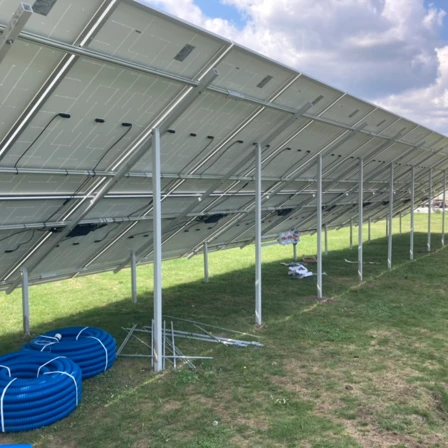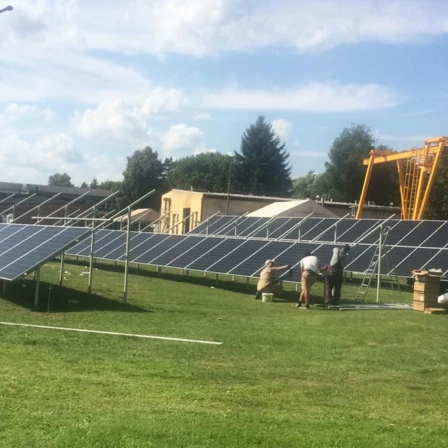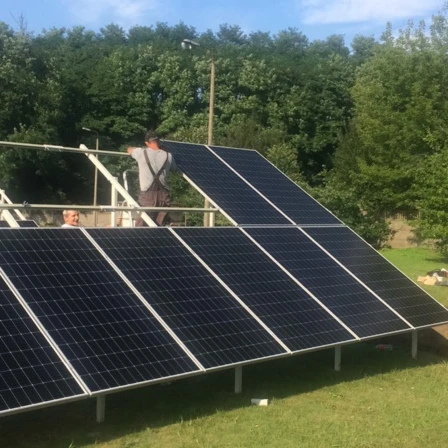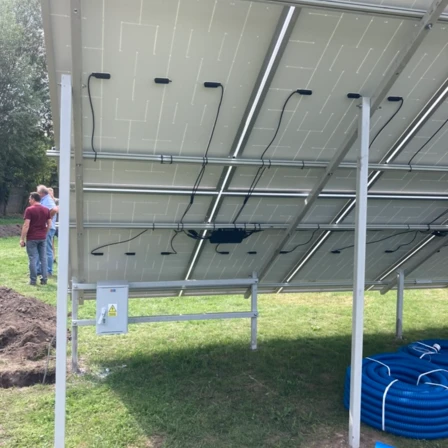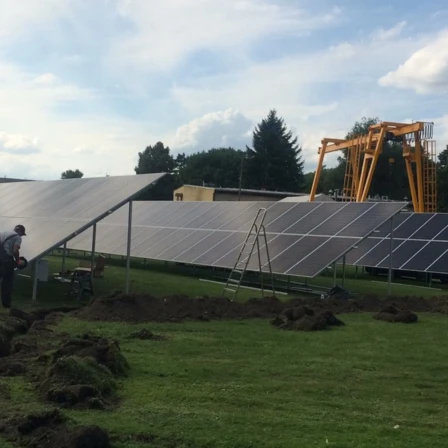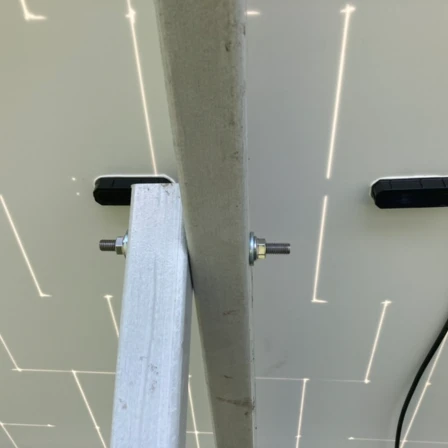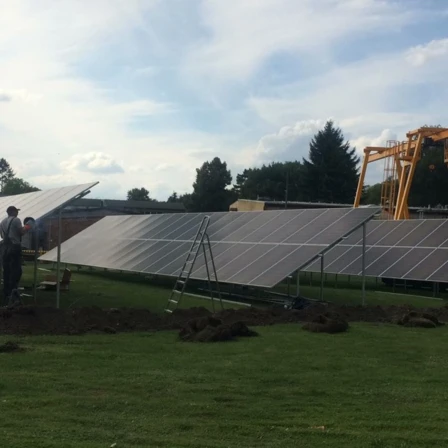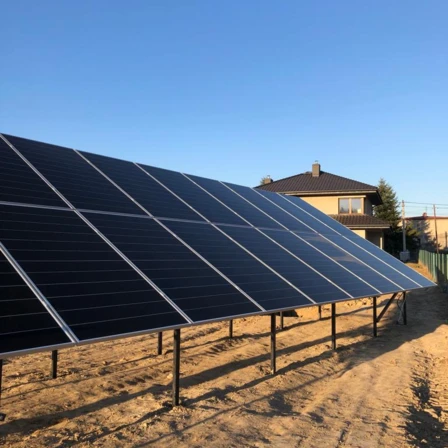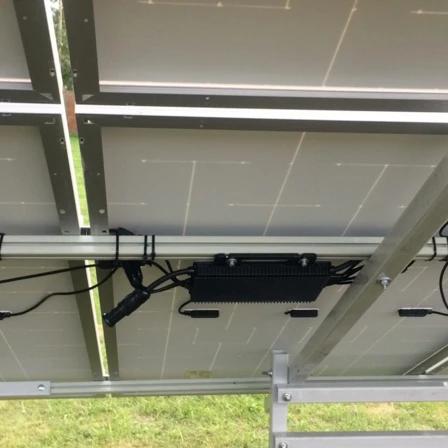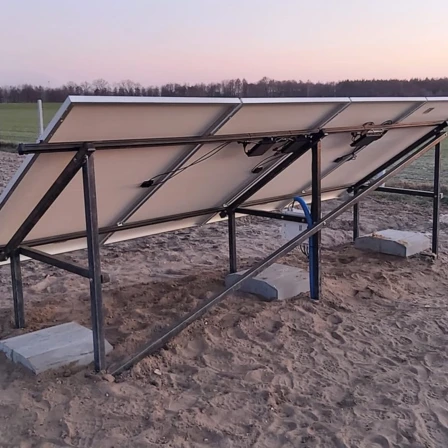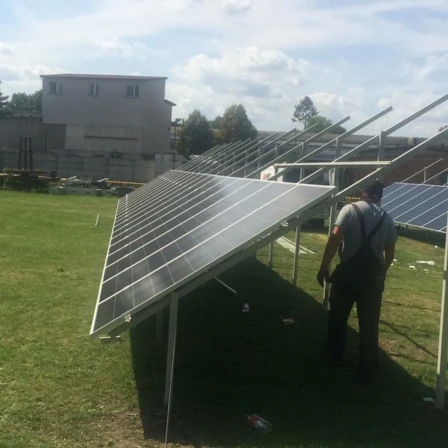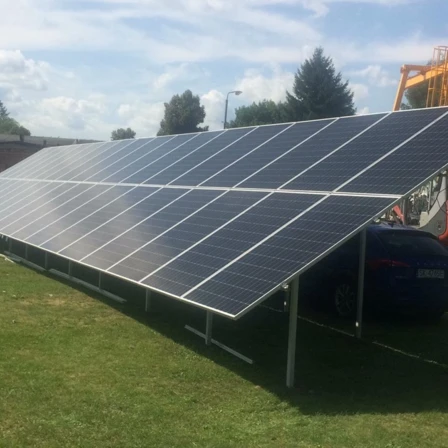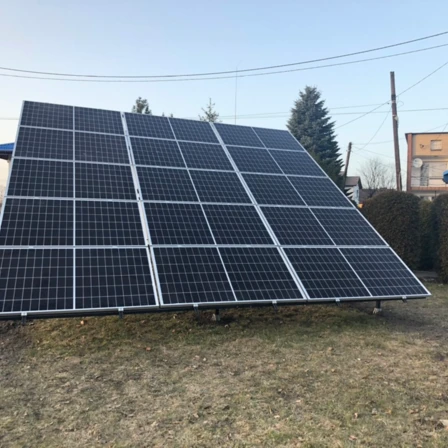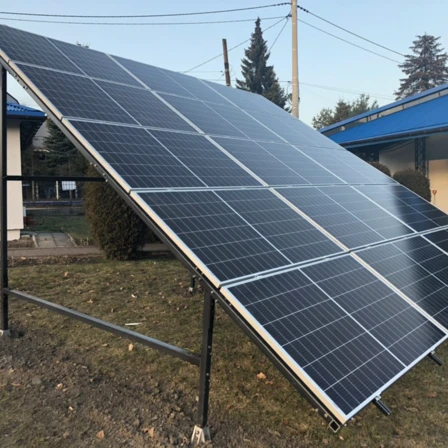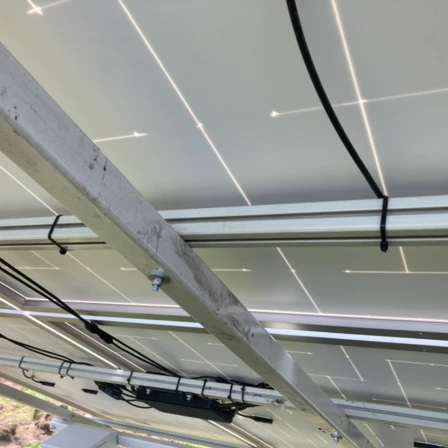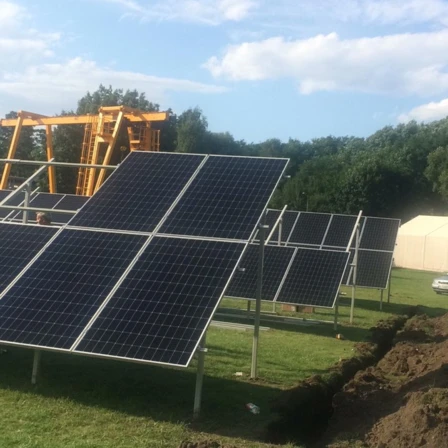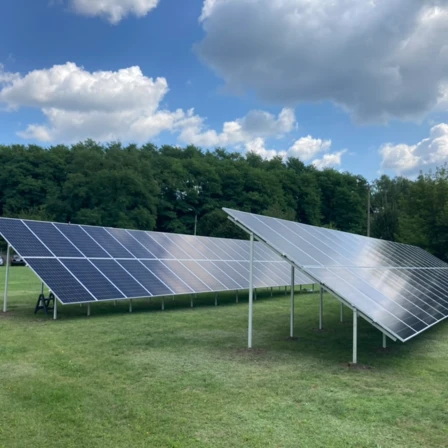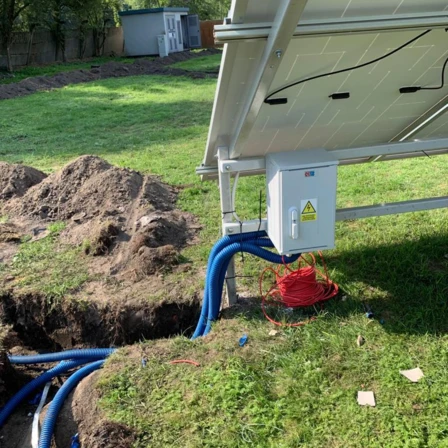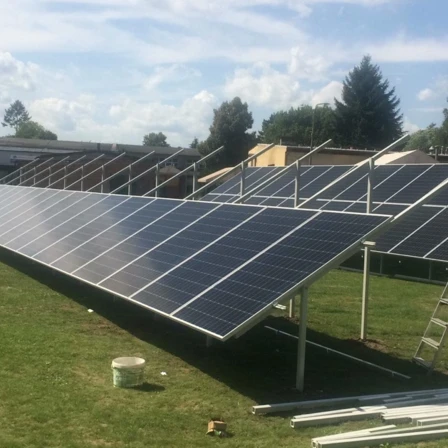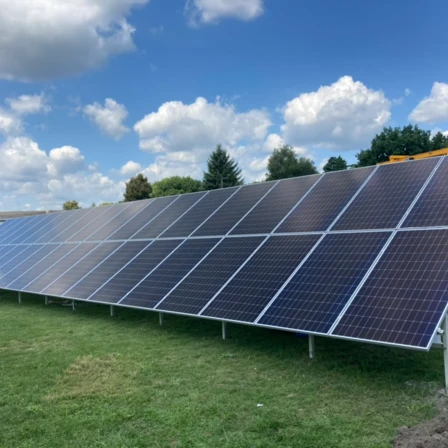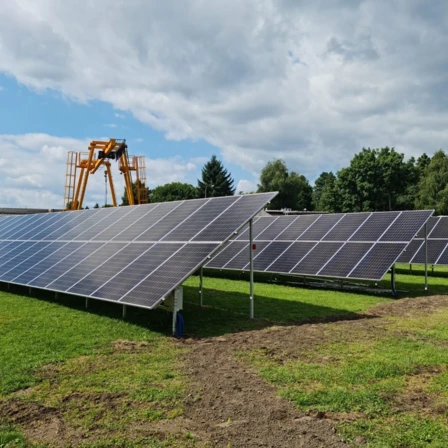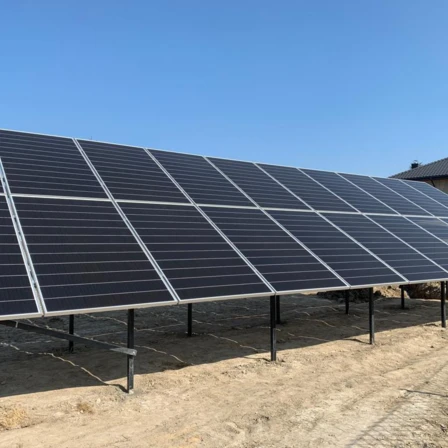REALIZATIONS
Ground PV refers to solar photovoltaic systems installed on the ground that efficiently utilize solar energy to generate electricity. This form of installation is becoming increasingly popular, especially in large commercial and industrial projects where available space is not an issue.
Key Aspects of GROUND PV Systems:
1. Location and Soil Analysis: Choosing the right location is crucial. Analyzing soil quality, sunlight availability, and surrounding infrastructure is essential, as well as assessing potential limitations such as terrain obstacles or legal regulations.
2. System Design: Based on the analysis, engineers design the system, determining the number of panels, their layout, and the type of supporting structure. GROUND PV systems can be tailored to various terrain conditions and may include both photovoltaic panels and solar tracking systems that maximize exposure to sunlight.
3. Selection of Panels and Inverters: Choosing components is key to the system's efficiency. Photovoltaic panels should be durable and efficient, while inverters must be suited to the system's requirements. Increasingly, high-efficiency panels are used to achieve better performance in challenging weather conditions.
4. Installation: Installing GROUND PV systems requires care and precision. Support structures are installed in the ground, which may involve driving piles, pouring foundations, or mounting on prefabricated structures. Ensuring proper stability is important for the system to withstand weather conditions such as wind or precipitation.
5. Integration with the Energy System: After installation, the system is integrated with the local energy grid. GROUND PV systems must be properly connected to inverters and the grid, enabling effective production and distribution of energy.
6. Monitoring and Maintenance: Once the system is operational, regular monitoring of its performance and maintenance is important. Performance monitoring allows for quick responses in case of failures, while regular cleaning of the panels and checking the technical condition of the structure ensures long-term system efficiency.
Benefits of Using GROUND PV:
- High Efficiency: GROUND PV systems allow for the installation of a large number of panels, leading to higher energy production.
- Flexibility: The ability to tailor the project to various terrain conditions and customer needs.
- Cost Savings: Reducing electricity costs for large consumers and the opportunity to sell surplus energy back to the grid.
- Support for Local Communities: GROUND PV projects can create jobs and contribute to the development of local economies.
In summary, GROUND PV solar systems are an effective and versatile solution in the field of renewable energy. Due to their flexibility and efficiency, these systems can significantly contribute to sustainable energy development.


